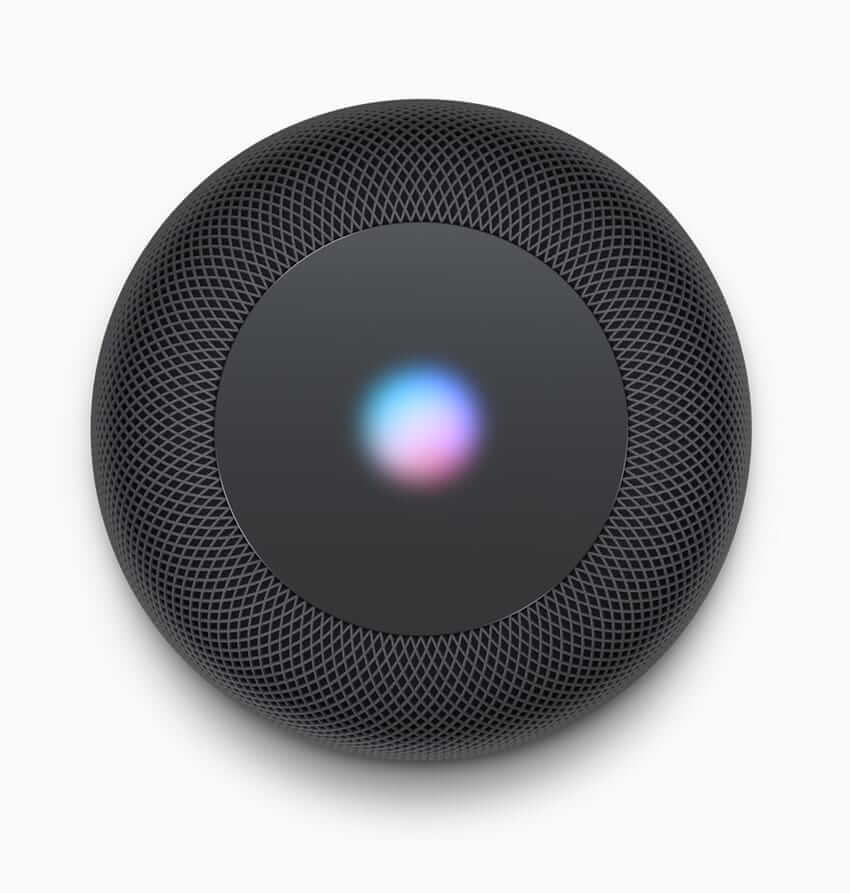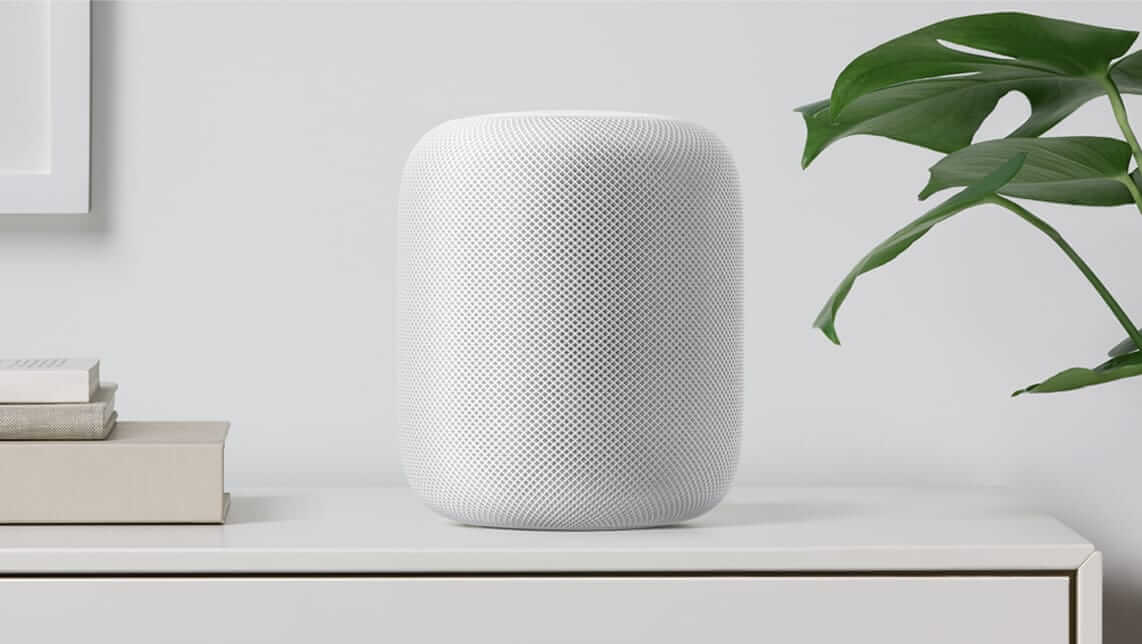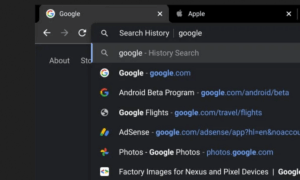Google Home, Amazon Alexa & Echo, Cortana Invoke – these are the home speakers everyone talks about today. Google and Amazon have done a pretty good job of taking over the smart assistant/home hub market so Apple’s launch of its own home speaker was long overdue. Alas, it did happen at the 2017 Worldwide Developers Conference this week. The HomePod is their version of a home device, only it seems as more of a high-tech speaker for all the music you want to listen to than a home hub. Here’s why #objectmagic
The 7-inches tall device is somewhat similar in shape to Amazon’s Alexa but rounder and completely covered in acoustically treated mesh. As you’ve probably heard, it’s a pretty great piece of hardware. It has a 360-degree array of 7 tweeters along the base with an upward-facing woofer for room-filling sound. In fact, Apple seems to have put all their energy in making music sound its best on HomePod.
There’s an Apple A8 chip onboard to deliver “spatial awareness“, meaning the $350 device will automatically tune itself when it’s placed in different parts of the house. If you really want to take your home music experience up a notch, simply sync two HomePods together.

So far, so good, but what music will you listen to? Here’s the trick – while other smart speakers play music from your phone or from the cloud, HomePod integrates with Apple Music. So, if you have an Apple Music subscription, the sky is your limit when it comes to music choices.
This is Apple’s big ace in the sleeve, because let’s be honest – HomePod isn’t that attractive as a home hub. Users have no good reason to prefer Siri as a home assistant over Google Assistant or Alexa (unless they’re Apple customers already). Those two have been on the market for more time and are more likely to remain at the top in the near future. Apple is probably hoping to make up for the delay by opening the gates to music heaven.
Plus, there’s another obstacle in the path of HomePod’s success – manufacturers. Those who will want to integrate with HomeKit, the software platform, will need to add an MFi chip to their home devices before launch. That means this generation’s devices won’t work with HomePod.
That said, there is a silver lining; Apple’s HomePod is supposedly more secure than other speakers. Your requests to Siri are send to the cloud through an anonymous Siri ID, not your Apple ID. That happens automatically, not just when you decide to manually delete your history: “With HomePod, only after “Hey Siri” is recognized locally on the device will any information be sent to Apple servers, encrypted and sent using an anonymous Siri identifier.”
In the end, Apple’s speaker will have its old customers’ allegiance. With a bit of luck, it could win over users with its audio capabilities. But we don’t see it having real success as a device that keeps in check your house.
Follow TechTheLead on Google News to get the news first.























